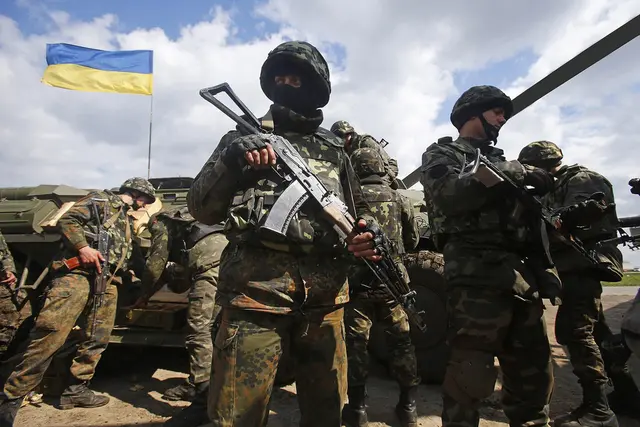
Apr 25, 2023 • Economics
The Global Economic Impact of the War in Ukraine
A Personal Account of a Shifting Landscape

As I sat on my couch one evening, scrolling through news articles on my phone, I came across a headline that caught my attention: "The War in Ukraine: Economic Shockwaves Felt Around the World." It got me thinking about how the conflict in Ukraine with Russia has not only left a trail of devastation and heartbreak but has also sent ripples across the global economy. Let's take a look at the various ways this war has impacted the world economy..
1. Disruptions to Energy Markets
One of the most significant effects of the war in Ukraine has been the disruption of energy markets. Russia is a major player in the global energy sector, accounting for about 11% of the world's oil production and around 40% of Europe's natural gas supply. When the conflict escalated, European nations imposed sanctions on Russia, disrupting the flow of natural gas and causing gas prices to skyrocket.
I felt this impact firsthand when I received my energy bill last month. It was nearly double the amount I had paid the previous month, and the only explanation I could find was the increased cost of natural gas due to the war. In turn, higher energy prices have caused a domino effect on other industries, leading to increased production costs and, ultimately, higher prices for consumers.
2. Impact on Global Trade
The war in Ukraine has also significantly impacted global trade. In the past, the country served as a crucial transit point for goods traveling between Europe and Asia. However, the ongoing conflict has led to the closure of many transport routes, resulting in delays and increased costs for businesses worldwide.
For instance, my cousin owns a small clothing boutique in Paris, and she recently shared with me her frustration with the delays in receiving new inventory from her suppliers in Asia. The disruptions in transport routes have forced her to deal with higher shipping costs and longer wait times, which ultimately affects her bottom line.
3. Strain on Agricultural Markets
Ukraine and Russia are both major agricultural producers, accounting for a significant portion of the world's wheat, corn, and sunflower oil exports. The war has led to disruptions in agricultural production, causing a surge in global food prices. As a result, countries that rely on these exports are experiencing food shortages and rising inflation.
A friend of mine in Egypt, for example, told me that the price of bread, a staple in their diet, has doubled in recent months. This has led to widespread discontent among the population and has put additional pressure on the Egyptian government to find alternative sources of wheat to stabilize prices.
4. Weakening of the Global Economy
The ongoing war in Ukraine has had a destabilizing effect on the global economy. The uncertainty surrounding the conflict and the imposition of economic sanctions on Russia have led to decreased investment and increased market volatility. This has resulted in slower economic growth, higher inflation, and job losses in various sectors.
I recently met a former colleague who had been working in the tourism industry. He told me that the uncertainty and heightened geopolitical tensions have led to a significant decline in tourists visiting Europe, forcing many businesses to downsize or close their doors entirely. His own company had to let go of several employees, including him, due to the downturn in business.
Final Thoughts
The war in Ukraine has had far-reaching consequences beyond its borders, affecting the global economy in various ways. From disrupted energy markets and global trade to strained agricultural markets and a weakening of the global economy, the conflict has left a lasting impact on the lives of countless individuals. As I continue to witness these events unfold, I hope for a resolution that will not only bring peace to the region but also restore stability and prosperity to the world economy.
To achieve this, it is crucial that the international community comes together to address the root causes of the conflict and find a sustainable, long-term solution. This will involve diplomatic efforts, humanitarian aid, and economic support to help rebuild the affected countries and ensure that the global economy can recover from the shockwaves created by this war.
I believe it's essential to stay informed about the ongoing crisis and to support initiatives that promote peace and economic stability. By understanding the complexities of the situation and recognizing the global implications of the war in Ukraine, we can play a role in fostering a more peaceful and prosperous world.
In conclusion, the war in Ukraine has had a profound impact on the global economy, touching the lives of ordinary people in ways both big and small. While the situation remains uncertain, it is my hope that through diplomacy, collaboration, and resilience, the international community can overcome the challenges posed by this conflict and work towards a brighter, more stable future for all.




